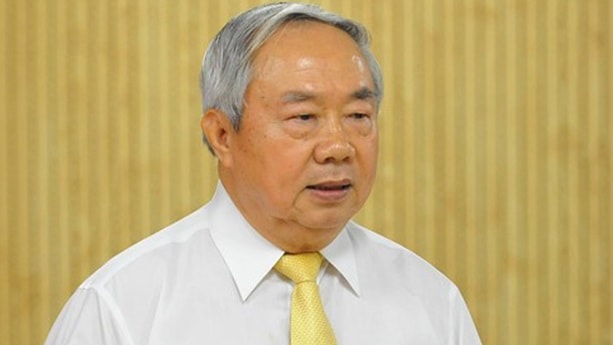Merging the offices of the People's Committee, People's Council, and National Assembly Delegation: How to make both sides happy?
During the pilot process of merging the three offices of the People's Committee, People's Council and National Assembly Delegation in localities, some problems arose.
One of the contents that the National Assembly Standing Committee commented on in the 35th session was the Draft Law on amending and supplementing a number of articles of the Law on Government Organization and the Law on Organization of Local Government. At the discussion session, according to delegates, in the process of piloting the merger of the 3 offices of the National Assembly Delegation, People's Council and People's Committee in some localities, there were shortcomings that need to be thoroughly studied before widespread implementation.
Many opinions at the National Assembly Standing Committee said that the merger of 3 new pilot offices in 12 provinces and cities in a short period of time has also shown that many problems have arisen.
According to Vice Chairman of the National Assembly Phung Quoc Hien, if the three offices are merged, the unit will have to present the issue to the People's Committee and the People's Council. Mr. Hien likened "the office to a neck, now one neck supporting two ends, not knowing which way to turn". Therefore, this arrangement plan needs to be carefully considered.
Chairman of the National Assembly's Committee on Culture, Education, Youth, Adolescents and Children Phan Thanh Binh also wondered how the leaders of the People's Council, the National Assembly Delegation and the People's Committee would direct the office when the three offices merged.
 |
| Mr. Vu Mao - former member of the Party Central Committee, former Head of the National Assembly Office. |
Commenting on the issues arising during the pilot implementation of the merger of 3 offices in localities, Mr. Vu Mao - former member of the Party Central Committee, former Head of the National Assembly Office said that we must have the responsibility to summarize the advantages and disadvantages of different models, from which to carefully study to come up with the most reasonable solution.
“When merging, it is not right to separate them, separate them to follow their functions and tasks. The office of the National Assembly Delegation and the office of the People's Council are sometimes separated, sometimes merged, and when merged, it is not right. One side is the office of the National Assembly Delegation serving the National Assembly and the State; the other side is the office of the People's Council serving the locality; they have different characteristics, tasks, responsibilities and powers. I suggest that we summarize and study carefully to come up with the most reasonable solution,” Mr. Vu Mao commented.
This is the third time of separation and merger, and each separation and merger changes the seals and causes many other troubles as well as many other consequences. According to Mr. Vu Mao, such many changes show that the leaders of each period and each stage must have different perceptions, viewpoints and thinking: "I suggest that the responsible agencies should open up for the people to participate in giving opinions because this issue affects the people's interests, including the issue of merging into communes, we must be very careful".
Referring to the benefits and disadvantages if there is only one option: either merge all 3 offices or merge the People's Council and National Assembly Delegation offices, keeping the People's Committee office intact; or keep all 3 offices intact, based on practical research and many years of experience, Mr. Vu Mao said that all 3 offices should be kept intact. The problem here is to streamline, instead of merging too cumbersomely, each office needs to be streamlined and perform its functions properly, the structure must be streamlined to be reasonable in both organization and personnel and must be effective.
“Clearly, through the Resolutions of the Central Committee summarizing the past decades, we have gone through many separations and mergers. In fact, there are certain scientific, practical and theoretical bases for the Central Committee to suggest such solutions. However, we need to avoid the idea of “if the superiors say to merge, then we will merge” but must rely on practice and discuss appropriately. The Central Committee Conference has raised such issues, but in practice, in discussion, there are issues that need to be reported and presented for careful consideration. We must speak about the reality, the right viewpoints and ideas in a scientific manner, with full research,” affirmed the former Deputy Head of the National Assembly Office.
Regarding the summary of the pilot practice, implementing it in a scientific and systematic manner to ensure stability and systematization, avoiding the situation of merging and then separating, then merging again like in the recent past, Mr. Vu Mao proposed a solution: "We must look back at least 40 or 50 years, how our organizational models of offices have evolved, what the arguments of each period were, and what are the advantages and disadvantages compared to current practice to find out the causes and propose solutions. At the same time, we must also bring out the experiences of countries around the world to draw from and discuss", Mr. Vu Mao frankly proposed based on his experience after many years of work.


